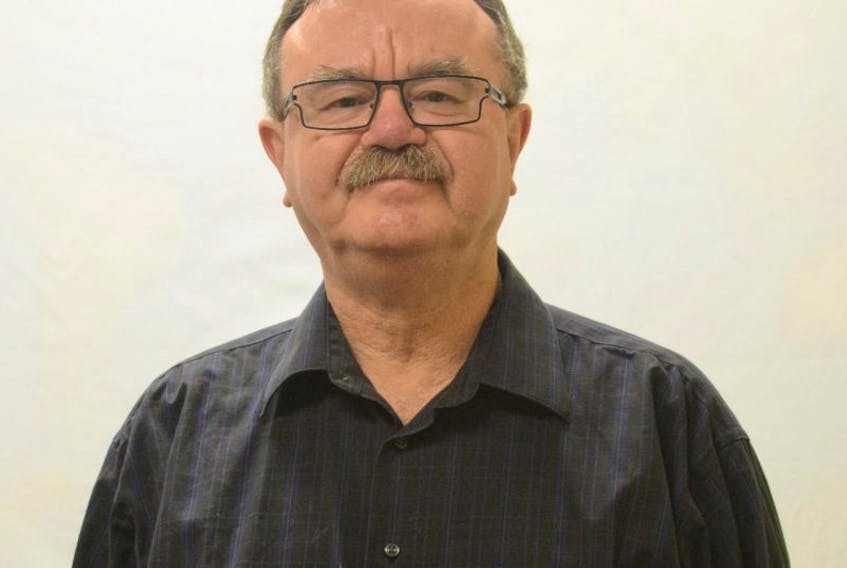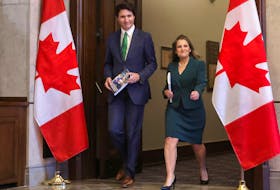Henry Srebrnik
Guest Opinion
As they used to say in Brooklyn, in a sarcastic tone of voice, “It couldn’t happen to a nicer guy!”
Omar al-Bashir, indicted as a war criminal by the International Criminal Court, has been the president of Sudan for three decades.
A ruthless murderer who took power in an Islamist coup d’état, he was responsible for genocidal campaigns against fellow Muslims in the western region of Darfur and against African Christians in the south of the country.
In the early 2000s, he recruited ethnic Arab militias known as the Janjaweed to Darfur where they committed mass murder and rape.
The second war in the south ended in ignominious defeat, when South Sudan seceded and became a sovereign state in 2011.
His regime also for a time harbored terrorists, including Osama bin Laden, leading to economic sanctions.
Though he managed to survive all of this, he’s now in trouble. His current problems stem from the government’s attempts to prevent economic collapse, exacerbated after the secession of South Sudan, which had three quarters of the country’s oil production.
Most of Sudan’s national budget goes to the military and security sector, as the country is dealing with insurgencies in the South Kordofan, Darfur, and Blue Nile regions. In 2018, only three per cent of the national budget was allocated to education and even less to health.
The salaries and allowances of national and state government officials put more burden on the annual budget. The country is crippled by corruption; Sudan ranks 175 out of 180 countries on Transparency International’s Corruption Perception Index.
Late last year Bashir instituted emergency austerity measures and a sharp currency devaluation.
Prices rose, because the government reduced subsidies on fuel and bread. This triggered mass protests in the capital, Khartoum, and other parts of the country.
They started in the eastern city of Atbara on Dec. 19 when the headquarters of the governing National Congress Party (NCP) was torched.
The demonstrations have morphed into demands calling for the end of Bashir’s rule. They denounce his corruption and disastrous economic management, which has focused on military spending rather than on necessities such as health and education.
The protests have also created a tenuous unity in the ethnically and regionally divided Sudanese society. Major General Salah Abdallah, the director of the Sudan Intelligence and Security Service, tried to use a divisive strategy to break the momentum of the protests by blaming non-Arab groups from Darfur for the unrest. But protesters in Khartoum responded by chanting, “The entire country is Darfur.” They have been numerous enough to fill stadiums and the square in front of Bashir’s palace.
Since the unrest began, Sudanese security forces have used live ammunition to break up demonstrations. Thousands have been swept up in mass arrests and at least 50 have been killed, according to human rights groups.
A government assault on a hospital in the city of Omdurman drew international condemnation. The Sudan Doctors Syndicate called for the release of at least 12 physicians arrested during recent raids. One has already been killed.
In speeches in front of his supporters, the president, who remains defiant, has described the protesters as saboteurs.
His government has tightened censorship of the country’s broadcast and print media, arresting journalists and confiscating newspapers with coverage of the protests. Access to social media websites has been blocked.
The Sudanese armed forces, who back the president, warned they would not allow a collapse of the state.
But on Feb. 2 more than 3,000 people protested his rule following the brutal death of an anti-government demonstrator.
While Sudanese, including a coalition of 22 opposition political parties, are calling for Bashir’s resignation, the ruling NCP has other plans. The current constitution bars Bashir from seeking re-election, but it has called for an amendment so that Bashir can run next year.
But can he even last until then?
Henry Srebrnik is a professor of political science at the University of Prince Edward Island.









